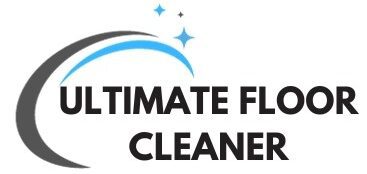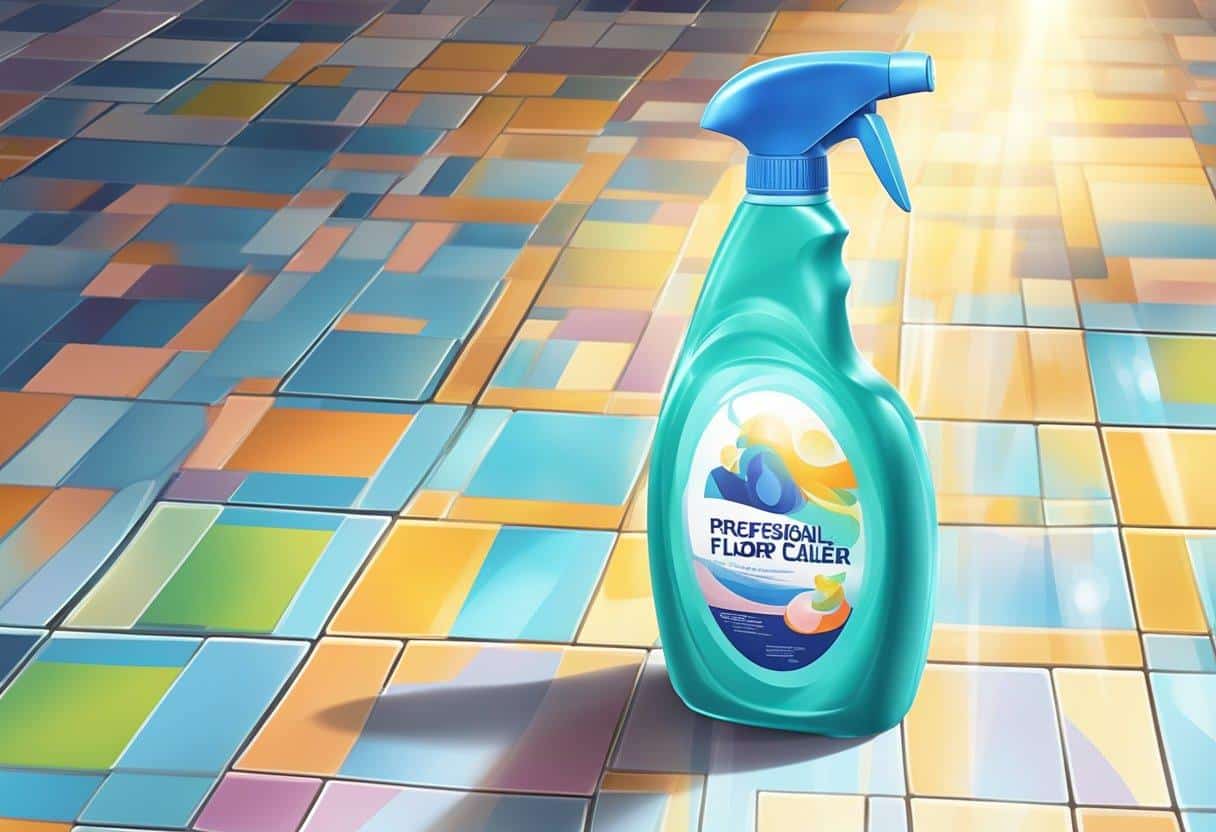Cleaning vinyl floors is an essential task to maintain their appearance and extend their
lifespan. However, choosing the right vinyl floor cleaner can be a daunting task, especially
with so many options available in the market. A good vinyl floor cleaner should be able to
remove dirt, grime, and stains without damaging the flooring’s surface or leaving any residue
behind.
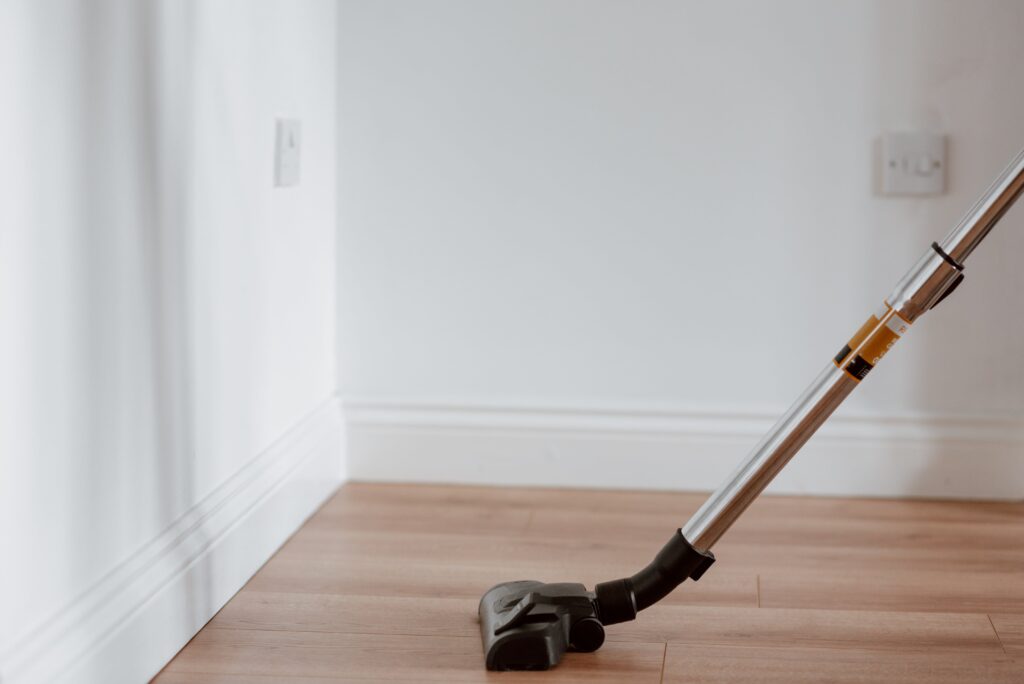
When it comes to vinyl floor cleaners, there are different types, ingredients, and application
methods to consider. Some vinyl floor cleaners are specifically designed for certain types of
vinyl flooring, such as luxury vinyl tile and plank, while others are more versatile. The key
ingredients in vinyl floor cleaners may vary, but most of them contain surfactants, solvents,
and water. The application methods for vinyl floor care may also differ depending on the
cleaner’s formula, such as spray mops, microfiber mops, or a simple cloth.
Key Takeaways
● Choosing the right vinyl floor cleaner is important to maintain the appearance and
lifespan of your flooring.
● There are different types of vinyl floor cleaners, ingredients, and application methods
to consider.
● Always follow the manufacturer’s instructions and safety guidelines when using vinyl
floor cleaners.
Types of Vinyl Floor Cleaners
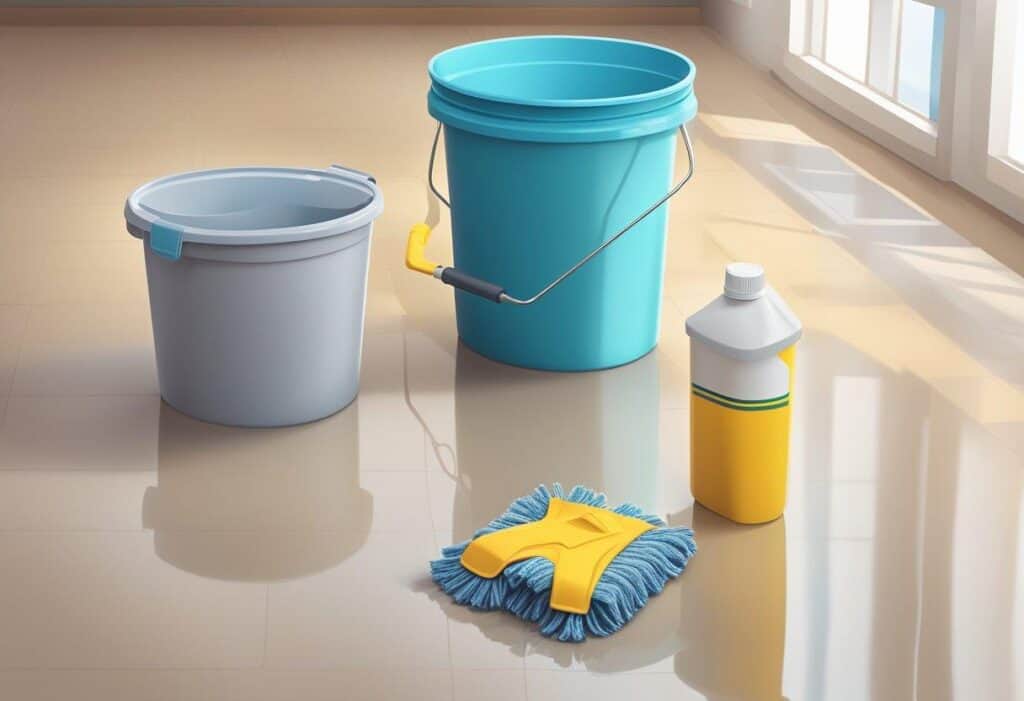
When it comes to cleaning your vinyl floors, there are several types of cleaners to choose
from. Each type has its own advantages and disadvantages, so it’s important to choose the
one that’s right for your needs. Here are the three main types of vinyl floor cleaners:
Solvent-Based Cleaners
Solvent-based cleaners are powerful and effective at removing dirt, grime, and stains from
vinyl floors. They contain strong chemicals that can break down tough stains and leave your
floors looking clean and shiny. However, these cleaners can be harsh on your floors and
may cause damage over time. They also have a strong odor that can be unpleasant to some
people.
Water-Based Cleaners
Water-based cleaners are a gentler option for cleaning your vinyl floors. They are typically
made with natural ingredients that are safe for your floors and the environment. They don’t
have a strong odor and are easy to use. However, they may not be as effective at removing
tough stains as solvent-based cleaners.
Eco-Friendly Cleaners
Eco-friendly cleaners are a type of water-based cleaner that is specifically designed to be
safe for the environment. They are made with natural ingredients and are free from harsh
chemicals. They are a great option for those who are concerned about the impact of their
cleaning products on the environment. However, they may not be as effective at removing
tough stains as solvent-based cleaners.
When choosing a vinyl floor cleaner, it’s important to consider your needs and preferences. If
you have tough stains to remove, a solvent-based cleaner may be the best option. If you’re
concerned about the environment, an eco-friendly cleaner may be the way to go. Whatever
type of cleaner you choose, be sure to follow the instructions carefully to avoid damaging
your floors.
Key Ingredients in Vinyl Floor Cleaners
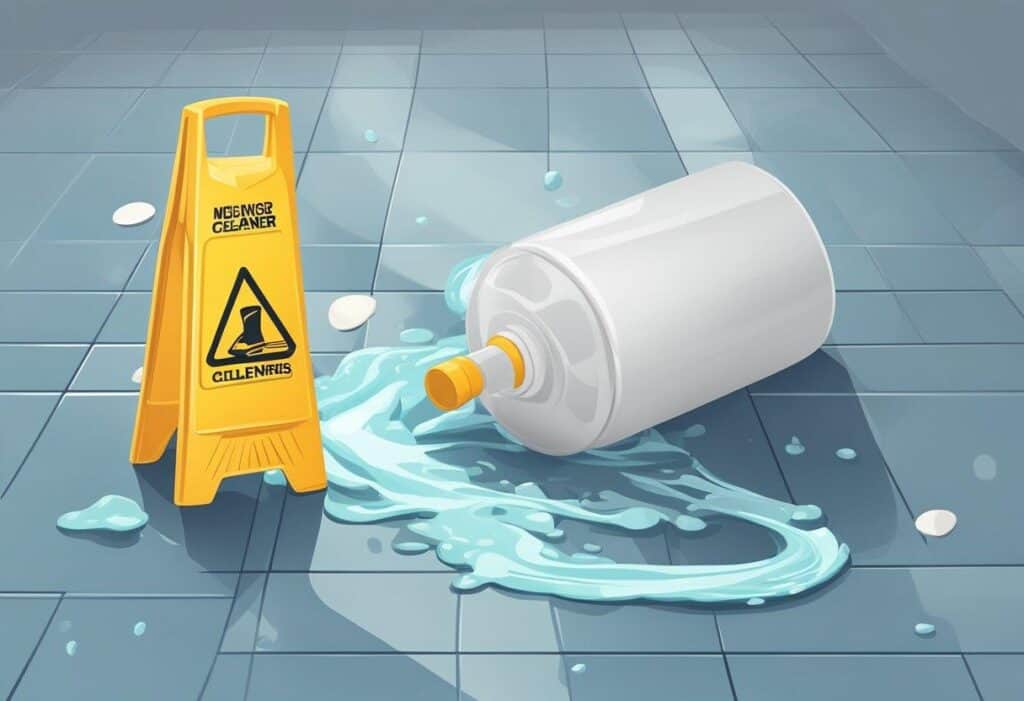
When choosing a vinyl floor cleaner, it’s important to understand the key ingredients that
make up the cleaning solution. Here are the four main ingredients you should look for:
Surfactants
Surfactants are the main cleaning agents in most vinyl floor cleaners. They work by breaking
down and lifting dirt and grime from the surface of the floor. Look for surfactants like sodium
lauryl sulfate or sodium laureth sulfate, which are effective at removing dirt and stains.
Solvents
Solvents are used in vinyl floor cleaners to dissolve tough stains and residue. They are
especially effective at removing grease and oil-based stains. Common solvents used in vinyl
floor cleaners include isopropyl alcohol and ethylene glycol monobutyl ether.
pH Neutralizers
Vinyl floors can be sensitive to harsh chemicals and high pH levels, which can cause
damage and discoloration. pH neutralizers are added to vinyl floor cleaners to balance out
the acidity and prevent damage to the floor. Look for cleaners that have a neutral pH level of
around 7.
Natural Ingredients
If you prefer to use natural products in your home, there are vinyl floor cleaners available
that use natural ingredients like vinegar, essential oils, and plant-based surfactants. These
cleaners are effective at removing dirt and stains, while also being safe for your family and
the environment.
When choosing a vinyl floor cleaner, be sure to read the label carefully and look for these
key ingredients. By choosing a cleaner that contains the right ingredients, you can keep your
vinyl floors looking clean and beautiful for years to come.
Application Methods for Vinyl Floor Care
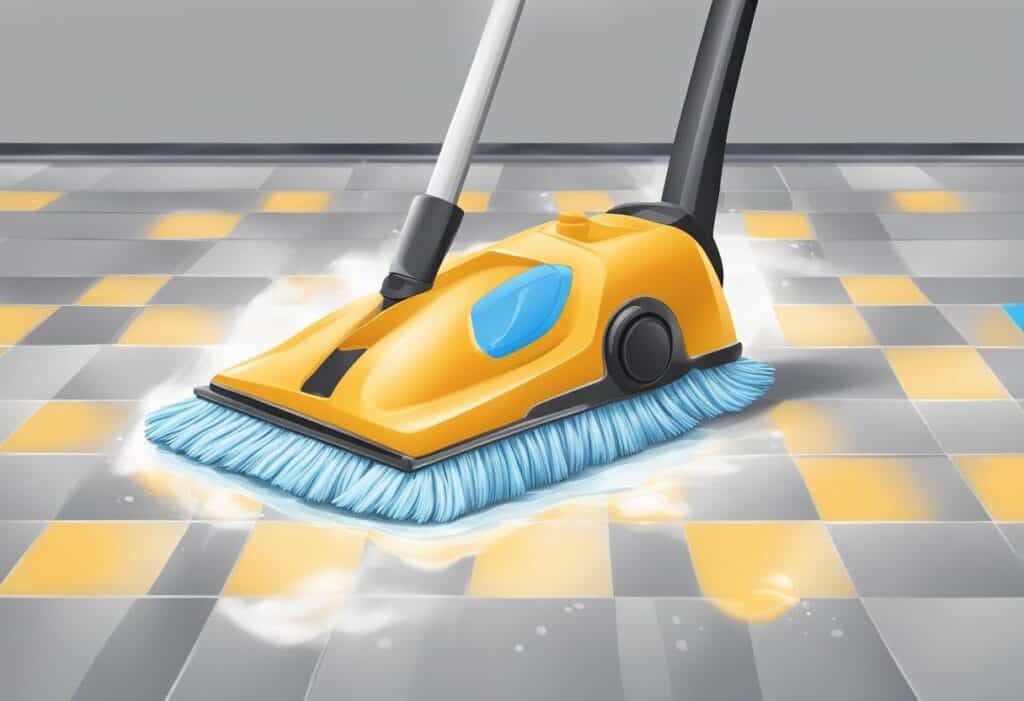
When it comes to cleaning your vinyl floors, there are a few different methods you can use.
Each method has its own pros and cons, so it’s important to choose the one that works best
for you and your floors.
Spray Mops
Spray mops are a popular choice for vinyl floor care because they are easy to use and
require minimal effort. These mops come with a built-in spray bottle that allows you to apply
the cleaning solution directly to the floor as you mop. This eliminates the need for a separate
bucket and reduces the amount of water on your floors, which can be damaging to vinyl.
To use a spray mop, simply fill the bottle with your preferred cleaning solution and attach it to
the mop head. Then, spray the solution onto the floor as you mop. Be sure to use a gentle,
non-abrasive cleaning solution that is safe for vinyl floors. Avoid using harsh chemicals or
abrasive scrubbers, as these can damage the surface of your floors.
Steam Mops
Steam mops are another popular choice for vinyl floor care. These mops use hot steam to
clean and sanitize your floors, eliminating the need for harsh chemicals. Steam mops are
also great for removing tough stains and dirt that can be difficult to remove with traditional
mopping methods.
To use a steam mop, simply fill the water tank and wait for the mop to heat up. Then, glide
the mop over your floors, allowing the steam to penetrate the surface and loosen dirt and
grime. Be sure to use a steam mop that is safe for vinyl floors and follow the manufacturer’s
instructions carefully.
Traditional Mopping
Traditional mopping is still a reliable method for cleaning vinyl floors. This method requires a
bucket of water and a cleaning solution, along with a mop or sponge. While it may require a
bit more effort than spray or steam mopping, traditional mopping is still an effective way to
keep your floors clean and looking great.
To use traditional mopping, fill a bucket with warm water and add a gentle cleaning solution
that is safe for vinyl floors. Then, dip your mop or sponge into the solution and wring out any
excess water. Mop your floors in a back-and-forth motion, being careful not to use too much
water. Rinse your mop or sponge frequently and change the water in your bucket as needed.
Overall, there are several methods you can use to keep your vinyl floors clean and looking
great. Whether you prefer spray mops, steam mops, or traditional mopping, be sure to
choose a method that is safe for your floors and follow the manufacturer’s instructions
carefully.
Best Practices for Cleaning Vinyl Flooring
Vinyl flooring is a popular choice for its durability, affordability, and easy maintenance. To
keep your vinyl floors looking their best, it’s important to clean them regularly using the right
products and techniques. Here are some best practices for cleaning vinyl flooring:
1. Sweep or vacuum regularly
Dirt and dust can scratch your vinyl floors over time, so it’s important to keep them clean.
Sweep or vacuum your floors regularly to remove debris and prevent scratches. Use a
soft-bristled broom or a vacuum cleaner with a hard floor setting to avoid damaging your
floors.
2. Use a damp mop for deep cleaning
For a deeper clean, use a damp mop with a vinyl floor cleaner. Avoid using too much water,
as excess moisture can seep into the seams and damage the adhesive. Instead, dampen
your mop with water and wring it out thoroughly before use.
3. Avoid using harsh chemicals
Harsh chemicals like bleach or ammonia can damage your vinyl floors and strip away their
protective coating. Instead, use a gentle vinyl floor cleaner that is specifically formulated for
use on vinyl floors. Look for cleaners that are pH-neutral and free of harsh chemicals.
4. Wipe up spills immediately
Spills and stains can damage your vinyl floors if left unattended. Wipe up spills immediately
using a clean, damp cloth. Avoid using abrasive scrubbers or harsh chemicals, as these can
damage your floors.
5. Protect your floors from scratches and dents
Prevent scratches and dents by using furniture pads under heavy furniture and avoiding high
heels or cleats on your floors. You can also place doormats at entryways to prevent dirt and
debris from being tracked onto your floors.
By following these best practices, you can keep your vinyl floors looking their best for years
to come.
Top Reviewed Vinyl Floor Cleaners
When it comes to cleaning your vinyl floors, it’s important to use the right cleaner to avoid
damaging the surface. Here are some of the top reviewed vinyl floor cleaners that are safe
and effective.
Commercial Brands
1. Rejuvenate High-Performance Luxury Vinyl Floor Cleaner: This cleaner is a
popular choice among homeowners and professionals alike. It’s specially formulated
to break down dirt, grime, and chemical residues without leaving any streaks or
residue. The powerful formula is safe for use on luxury vinyl tile and plank flooring, as
well as other types of hard surface flooring.
2. Bona Stone, Tile & Laminate Floor Cleaner: This cleaner is a water-based solution
that’s safe for use on vinyl floors, as well as other types of hard surface flooring. It’s
specially formulated to clean without leaving any dulling residue, and is safe for use
around children and pets.
Professional Formulas
1. Lundmark All Surface Floor Cleaner: This professional-grade cleaner is designed
to clean and protect all types of hard surface flooring, including vinyl, laminate, and
hardwood. It’s specially formulated to remove dirt, grime, and stains without
damaging the surface, and is safe for use around children and pets.
2. Bona Pro Series Luxury Vinyl Floor Cleaner: This professional-grade cleaner is
designed to clean and protect luxury vinyl tile and plank flooring. It’s specially
formulated to remove dirt, grime, and stains without leaving any residue, and is safe
for use around children and pets.
When choosing a vinyl floor cleaner, it’s important to consider the type of flooring you have
and the level of cleaning you need. By using one of the top reviewed vinyl floor cleaners
listed above, you can be confident that you’re using a safe and effective cleaner that will
keep your floors looking their best.
Safety Considerations When Using Floor Cleaners
When using vinyl floor cleaners, it is important to consider the safety of the people and pets
in your home. Here are some safety tips to keep in mind:
Chemical Safety
Vinyl floor cleaners can contain harsh chemicals that may be harmful if ingested or inhaled.
Always read the label of the cleaner before using it and follow the instructions carefully. If the
cleaner requires dilution, make sure to measure the correct amount of cleaner and water. Do
not mix different cleaners together as this can create dangerous fumes.
Wear gloves and protective eyewear when using vinyl floor cleaners to avoid skin and eye
irritation. Keep the cleaner out of reach of children and pets. After using the cleaner, make
sure to rinse the floor thoroughly with water to remove any residue.
Pet and Child Safety
Vinyl floor cleaners can be harmful if ingested by pets or children. Keep children and pets
away from the area being cleaned until the floor is completely dry. Store the cleaner in a
secure location that is out of reach of children and pets.
If your pet accidentally ingests vinyl floor cleaner, contact your veterinarian immediately. If a
child ingests the cleaner, call poison control or seek medical attention right away.
By following these safety tips, you can enjoy clean vinyl floors while keeping your home and
loved ones safe.
DIY Vinyl Floor Cleaner Solutions
Keeping your vinyl floors clean can be a hassle, especially if you have children or pets.
Fortunately, there are many DIY vinyl floor cleaner solutions that can help you keep your
floors looking their best without breaking the bank.
One of the most effective and easiest DIY vinyl floor cleaner solutions is a mixture of white
vinegar and warm water. Simply mix one cup of white vinegar with one gallon of warm water
and use a mop or cloth to clean your floors. This solution is great for removing dirt and grime
from your floors, and it won’t leave any residue behind.
Another great DIY vinyl floor cleaner solution is a mixture of warm water and dish soap.
Simply mix a few drops of dish soap with a gallon of warm water and use a mop or cloth to
clean your floors. This solution is great for removing tough stains and spills from your floors.
If you’re looking for a DIY vinyl floor cleaner solution that will leave your floors smelling fresh
and clean, try mixing a few drops of essential oil with warm water and white vinegar. Simply
mix one cup of white vinegar, one gallon of warm water, and a few drops of your favorite
essential oil, such as lavender or peppermint, and use a mop or cloth to clean your floors.
When using any DIY vinyl floor cleaner solution, it’s important to avoid using abrasive
materials or harsh chemicals that can damage your floors. Instead, stick to soft cloths or
mops and gentle cleaning solutions that are safe for your floors.
By using these DIY vinyl floor cleaner solutions, you can keep your floors looking their best
without spending a lot of money or using harsh chemicals.
Maintenance Tips to Extend Vinyl Floor Lifespan
1. Clean Regularly
Vinyl floors should be cleaned regularly to prevent dirt and debris from scratching or
damaging the surface. Sweep or vacuum the floor daily to remove loose dirt and dust. Use a
damp mop with a mild cleaner to remove stains and spills. Avoid using harsh chemicals,
abrasive cleaners, or steam cleaners as they can damage the surface of the vinyl.
2. Protect from Sunlight
Direct sunlight can cause vinyl floors to fade or discolor over time. To protect your floors from
sunlight, use window coverings or blinds to block out the sun during the hottest parts of the
day. You can also apply a UV-resistant coating to the windows to reduce the amount of UV
rays that enter your home.
3. Use Furniture Pads
Furniture legs can scratch or dent vinyl floors if they are not properly protected. To prevent
damage, use furniture pads under the legs of chairs, tables, and other heavy items. This will
distribute the weight of the furniture evenly and prevent scratches and dents.
4. Trim Pet Nails
Pets with long nails can scratch or damage vinyl floors. To prevent this, keep your pet’s nails
trimmed regularly. You can also place a mat or rug under their food and water bowls to catch
any spills or drips.
5. Avoid High Heels
High heels can cause dents or scratches in vinyl floors, especially if they have a pointed or
stiletto heel. To prevent damage, avoid wearing high heels on vinyl floors or use heel caps to
protect the surface.
By following these maintenance tips, you can extend the lifespan of your vinyl floors and
keep them looking their best for years to come.
FAQs About Vinyl Floor Cleaner
1. What is the most effective machine for cleaning vinyl floors?
When it comes to cleaning vinyl floors, a simple mop and bucket can do the job. However, for a more thorough clean, a steam mop or a floor scrubber can be effective. Steam mops use hot steam to sanitize and deep clean vinyl floors without the need for chemicals, while floor scrubbers use rotating brushes to scrub and clean the surface. When choosing a machine, make sure it is suitable for use on vinyl floors and follow the manufacturer’s
instructions carefully.
2. Which liquid cleaner is recommended for the best results on vinyl flooring?
There are many liquid cleaners available for vinyl flooring, but it is important to choose a cleaner that is specifically formulated for use on vinyl. Look for a cleaner that is pH-neutral, as acidic or alkaline cleaners can damage the surface of the vinyl. Some popular vinyl floor cleaners include Rejuvenate Luxury Vinyl Floor Cleaner, Bona Hard-Surface Floor Cleaner, and Method Squirt + Mop Hard Floor Cleaner.
3. How can I safely clean and maintain luxury vinyl flooring?
Luxury vinyl flooring is a durable and low-maintenance option, but it still requires regular cleaning and maintenance to keep it looking its best. To clean luxury vinyl flooring, sweep or vacuum regularly to remove dirt and debris, and mop with a pH-neutral cleaner and water. Avoid using abrasive cleaners, scrub brushes, or steam cleaners, as these can damage the surface of the vinyl. To maintain the finish of the vinyl, apply a vinyl floor finish or polish as recommended by the manufacturer.
4. What are some DIY solutions for cleaning vinyl floors effectively?
There are several DIY solutions that can be effective for cleaning vinyl floors. One simple solution is to mix equal parts water and white vinegar in a spray bottle and use it to clean the floor. Another option is to mix a few drops of dish soap with warm water and use it to mop the floor. For stubborn stains, baking soda and water can be effective in lifting the stain. However, it is important to test any DIY solution in a small, inconspicuous area before using it on the entire floor.
5. Can I use general household products to create a homemade vinyl floor cleaner?
Yes, there are several household products that can be used to create an effective homemade vinyl floor cleaner. In addition to white vinegar and baking soda, other options include lemon juice, olive oil, and rubbing alcohol. However, it is important to research the specific ingredients and their effects on vinyl flooring before using them as a cleaner.
6. What are the professional tips for deep cleaning and rejuvenating vinyl floors?
Professional cleaners recommend deep cleaning and rejuvenating vinyl floors every six months to a year. To deep clean vinyl floors, use a floor scrubber or steam mop to remove dirt and grime, and follow up with a pH-neutral cleaner to remove any remaining residue. For scratches or scuffs, use a vinyl floor repair kit to restore the surface. To rejuvenate the finish
of the vinyl, apply a vinyl floor finish or polish as recommended by the manufacturer.
7. Can I use vinyl floor cleaner on laminate?
It’s generally not recommended to use vinyl floor cleaner on laminate floors. Vinyl cleaners can be too harsh and may damage the laminate surface. Always use a cleaner specifically designed for laminate floors to ensure their longevity and appearance.
